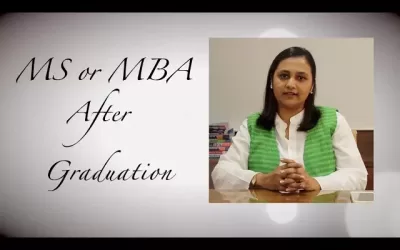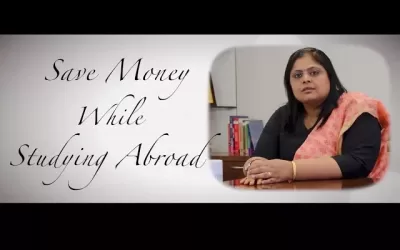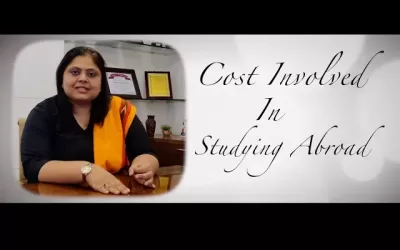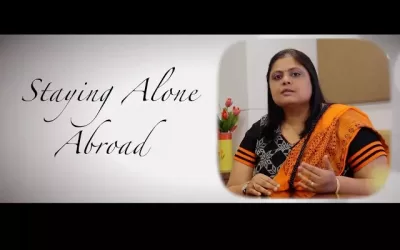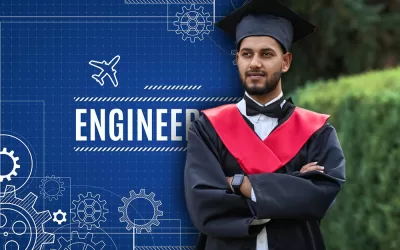 Ms. Kunjal Sakhrani talks about the importance of documents while doing applications abroad in her Study Abroad Documentation. The process of documentation differs abroad. Documents include a Statement of Purpose, personal statement, resume, academic scores, extracurricular certificates, financial documents, and recommendation letters.
Ms. Kunjal Sakhrani talks about the importance of documents while doing applications abroad in her Study Abroad Documentation. The process of documentation differs abroad. Documents include a Statement of Purpose, personal statement, resume, academic scores, extracurricular certificates, financial documents, and recommendation letters.
Statement of Purpose, personal statement, resume, academic scores, extracurricular certificates, financial documents, and recommendation letters are needed. Each of these documents should be in the right format, which will help students to make a successful application.
Should I see this study-abroad documentation?
Viewing this video will greatly help students dreaming of studying abroad act on this dream. If you are unsure about the process, the below video will help.
Essential Study Abroad Documentation: Your Comprehensive Guide
Are you excited about embarking on a journey of higher education in a foreign land? As you prepare for your study abroad adventure, it’s essential to navigate through the world of study abroad documentation. These documents are not just pieces of paper; they are your gateway to a fulfilling academic experience in another country. Let’s dive into the key documents you need to prepare for a smooth transition to studying abroad.
1. Study Abroad Application Documents: Your Starting Point
Before you even set foot in a foreign classroom, your journey begins with the study abroad application process. This entails submitting various documents that showcase your academic history, personal achievements, and aspirations. Be prepared to provide transcripts, academic certificates, and possibly standardized test scores. Craft an outstanding statement of purpose that highlights your motivation, goals, and why you’re the perfect fit for your chosen program.
2. International Student Visa Documents: Navigating the Visa Maze
Securing the right visa is a critical step in your study abroad venture. Each country has specific visa requirements, which usually include a valid passport, an acceptance letter from the educational institution, financial proof, and health insurance coverage. The process can be intricate, so start early to ensure you have sufficient time for any unforeseen delays.
3. Study Abroad Acceptance Letter: Your Ticket to Success
The acceptance letter from your chosen educational institution is not just a piece of paper; it’s your golden ticket to academic growth. This official document confirms your enrollment, program details, and start date. It’s often required for visa applications and serves as evidence of your commitment to your educational journey.
4. Document Checklist for Studying Abroad: Staying Organized
Staying organized is key to a stress-free transition. Create a comprehensive checklist of all required documents, cross-referencing guidelines from your institution and the embassy. This ensures you don’t miss any crucial paperwork and minimizes the chances of last-minute panic.
5. Student Visa Application Requirements: Navigating the Visa Process
Obtaining a student visa involves adhering to a set of specific requirements. Alongside the application form, be ready to provide proof of financial capability, and health insurance, and sometimes even attend an embassy interview. Each step is crucial, so pay attention to detail and meet all deadlines.
6. Financial Proof for Studying Abroad: Showcasing Your Funds
Most countries require you to prove you can cover your tuition and living expenses while studying abroad. This could involve bank statements, scholarship letters, or affidavits of support. Demonstrating your financial preparedness is vital for visa approval and your overall experience.
7. Language Proficiency Test Scores for International Students: Communicating Clearly
Many institutions require language proficiency test scores, such as IELTS or TOEFL, to ensure you can effectively participate in classes conducted in a foreign language. Prepare for these tests well in advance to meet your program’s language requirements.
8. Health Insurance for Overseas Students: Prioritizing Your Well-being
Health insurance is non-negotiable when studying abroad. Having comprehensive coverage safeguards you against unexpected medical expenses, ensuring you can focus on your studies and exploration of a new culture.
9. Statement of Purpose for Study Abroad: Sharing Your Story
Crafting a compelling statement of purpose is your chance to shine. This essay reveals your motivations, aspirations, and passion for your chosen field. Make it genuine and impactful to stand out among the sea of applicants.
10. Study Abroad Recommendation Letters: Let Others Speak for You
Strong recommendation letters add a personal touch to your application. Request these letters from professors, mentors, or employers who can attest to your academic prowess, character, and potential.
Navigating the realm of study abroad documentation might seem daunting, but each document plays a pivotal role in shaping your international academic journey. Pay attention to the details, stay organized, and start early to ensure a seamless transition to your chosen educational destination. Remember, these documents aren’t just papers; they’re your keys to unlocking a world of knowledge and experience.
Frequently Asked Questions (FAQs) for Study Abroad Documentation
1. What documents are typically required for studying abroad?
- Passport
- Visa
- Acceptance letter from the educational institution
- Proof of financial support
- Academic transcripts and certificates
- Language proficiency test scores (e.g., IELTS, TOEFL)
- Health insurance
- Statement of purpose or essays
- Letters of recommendation
2. How early should I start gathering my study abroad documents?
It’s recommended to start the documentation process at least 6-12 months before your intended start date. This allows ample time for preparation, verification, and any unforeseen delays.
3. What is the significance of a passport in the study abroad process?
A passport is a crucial identification document required for international travel. It serves as your primary proof of identity and nationality. Ensure that your passport is valid for at least 6 months beyond your intended return date.
4. How do I obtain a student visa for my chosen destination?
To obtain a student visa, you usually need to follow these steps:
- Receive an acceptance letter from a recognized educational institution.
- Apply for a student visa at the embassy or consulate of the country where you’ll be studying.
- Provide necessary documents, including your acceptance letter, financial proof, and health insurance.
- Attend an interview if required.
- Wait for the visa to be processed.
5. What is an acceptance letter, and why is it important?
An acceptance letter is an official document issued by the educational institution you’ve been admitted to. It outlines your program details, and start date, and confirms your enrollment. This letter is often required for visa applications and serves as evidence of your student status.
6. How do I prove my financial capability to study abroad?
Most countries require you to provide evidence of sufficient funds to cover tuition, living expenses, and other costs. This can be shown through bank statements, scholarship award letters, or sponsorship documents.
7. Can I use photocopies of my academic transcripts and certificates?
Generally, photocopies are not accepted for official purposes. You’ll likely need to provide attested or certified copies of your transcripts and certificates, along with their English translations if applicable.
8. Is health insurance necessary for studying abroad?
Yes, having health insurance is essential. Many countries require students to have valid health insurance to cover medical expenses during their stay. It’s important to research and secure suitable health coverage before departing.
9. What is a statement of purpose, and why do I need one?
A statement of purpose (SOP) is a written essay that outlines your academic and personal goals, reasons for choosing a particular program, and your plans for the future. It helps the admissions committee understand your motivations and suitability for the program.
10. Who should write my letters of recommendation?
Letters of recommendation should be written by individuals who can speak to your academic abilities, character, and potential. This can include professors, teachers, employers, or supervisors who know you well.
11. How important are language proficiency test scores?
Language proficiency test scores, such as IELTS or TOEFL, demonstrate your ability to communicate effectively in the language of instruction. They are often a requirement for admission to English-language programs.
12. What happens if my documents are not in English?
If your documents are not in English, you may need to provide official translations along with the original documents. Some institutions or countries may have specific translation requirements.
13. What if my study plans change after I’ve received my visa?
If your study plans change after you’ve received your visa, you should notify the appropriate authorities and your educational institution as soon as possible. Depending on the changes, you may need to apply for a new visa or get your existing visa amended.
14. How can I ensure that I have all the necessary documents before departure?
Create a checklist of required documents and cross-reference it with the guidelines provided by your chosen institution and the country’s embassy or consulate. Double-checking everything will help you avoid last-minute complications.

